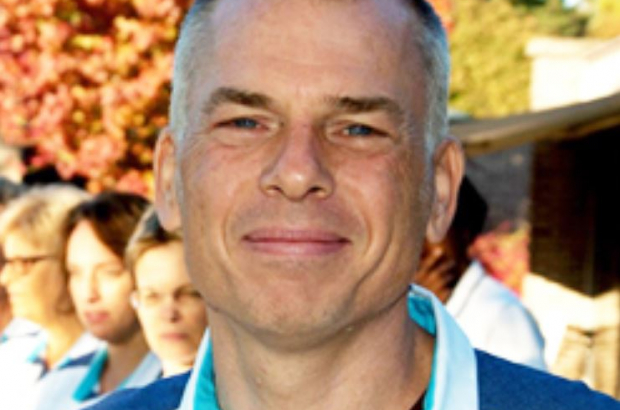- Daily & Weekly newsletters
- Buy & download The Bulletin
- Comment on our articles
My job in Belgium: How much does a head psychiatric nurse earn?
What is your job?
I am a head nurse of a ward within the department of geriatric psychiatry at KU Leuven's University Psychiatric Centre (UPC). My most important work is caring tasks and managing a care team - a broad multidisciplinary team with doctors, psychologists and various therapists.
There is room for 23 patients in our department. They are older people with both cognitive and physical problems. They are admitted for diagnosis and treatment, and to observe their behaviour and social interactions so that we can give targeted advice. Our care team follows them 24/7. In consultation with the supervising psychiatrist, I also determine the admission and discharge policy.
How did you end up in this sector?
My very first internship was in a geriatric department. That was a very positive experience, and an eye-opener - working with older people suited me, I discovered. I could do a lot for them and that gave me a special sense of satisfaction.
In the course of my education, even during my studies in criminology, my enthusiasm to work with the elderly grew stronger. I started in an admission department for adult psychiatry at the UPC KU Leuven, but then I went on to work for three years as a head nurse in a residential care centre, in a department for patients with dementia requiring high supervision. Then I came back to where it all started, this time as head nurse in the geriatric psychiatry ward at UPC KU Leuven, where I have stayed.
Do you like your job?
I love it. My job offers a lot of variety. I am closely involved in the daily healthcare practices on the ward and at the same time I am given ample opportunity to guide and shape the policy of the service. I also have a number of repetitive tasks, but because you do them for people - employees, patients or family - they never feel routine.
Our geriatric psychiatry department is very dynamic. Working both independently and with colleagues is encouraged, and I also have a close relationship with other departments. Our work is always interesting. Working together is very productive. It’s just really great.
Working in geriatric psychiatry requires a healthy balance in what we call the three Hs: head, hands and heart. Leading a team and driving the energy of your players is a privilege. What I also really appreciate is the stimulus within our organisation to keep yourself up-to-date with further studies - in fact, it is expected. Lastly, I have the freedom to organise my work myself.
What do you think of your income?
I earn €4,779 gross (€3,404 net including a bicycle allowance, hospitalisation insurance for the whole family and disability insurance). I can’t complain. As a head nurse in our hospital I receive a special allowance. While a general nurse has to work weekends, nights or evening work to receive an extra allowance on top of his fixed salary, we get that automatically.
Would you change jobs for a higher wage?
I don’t think so. It's about doing a job that you like to do and having good working relations with your colleagues. Switching to another area in the healthcare sector means nothing to me either. Depression, bipolar disorder, memory impairment, delusions, hallucinations, behavioral problems... there is a fascinating mix of symptoms and disorders, not just of psychiatry and psychotherapy but also of neurology, pharmacology, and non-medical interventions. You’re involved in family guidance, not to mention the ethical and medico-legal aspects. That makes our work demanding but also fascinating and educational: it is priceless to me.
I find working in healthcare in general, and with older people in particular, something to be proud of. Geriatric psychiatry is an area where a lot of scientific research is now being done, and is therefore evolving.
How many hours a week do you work per week?
I work 40 hours, although the contract provides for 38 hours. As compensation I have an extra day off every month. That’s very nice.
Do you save?
No.
Do you think about your pension?
I’m not working on it.
What is your biggest expense?
Living: paying off our mortgage.
What can you definitely not spend money on?
On the latest smartphone, or on a fast or glitzy car.
What do you gladly spend money on?
On books and CDs. Also spending money on living well and eating out with my family (I have five children). A good bike and bicycle clothing, of course. In that respect my commuter’s bicycle allowance is very welcome.
What would you do it you won the lottery?
Be cautiously happy. I would definitely continue to work as a head nurse. It would be fair to say not full-time, but still enough to maintain sufficient contact with the department and to be able to continue to exercise my function within it.


















Comments
What a great article on this important work. Thank you Pieter for what you do to help these vulnerable people and their families.